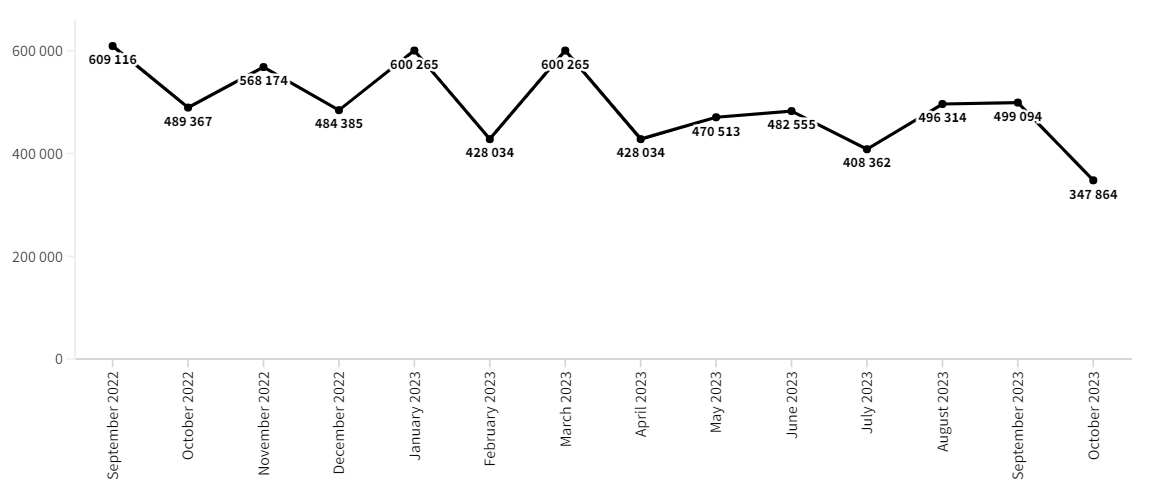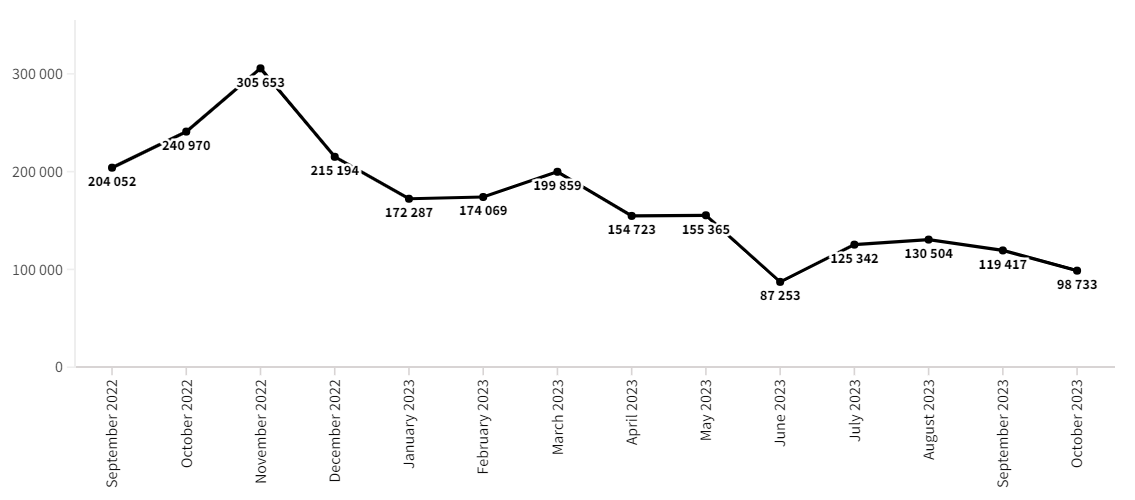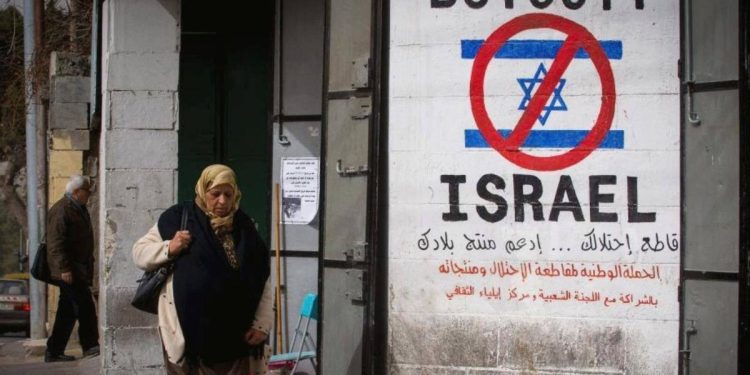The expansionist policy that Israel has been pursuing for years on Palestinian territories has evolved into a different dimension in recent days. The process that started with the operation called the al-Aqsa Flood by the Qassam Brigades on October 7, 2023, has increased with Israel’s disproportionate use of force on Gaza. In response to this disproportionate force, the Palestinian people continue to be subjected to systematic genocide, regardless of children, women, and the elderly. Hospitals, schools, places of worship, and refugee camps have been bombed, and even areas declared “safe” have been attacked. To date, more than 18,000 people, including at least 8000 children and 6000 women, have lost their lives, which occurred as a consequence of violation of international law of war. According to the United Nations, more than 1.6 million people, mainly children, the elderly, and women, need humanitarian assistance. People in the region have minimal access to basic food supplies and electricity. In addition, infectious diseases have increased, health services have been disrupted, and many people have been forced to leave their homes.
The attacks by Israel, which also violate international humanitarian law of war, have drawn significant global reactions from a moral perspective. People have expressed their sensitivity through various means to stop this oppression. Large-scale protests are still organized in many countries. In addition, people who chained themselves to ships to stop ships from going to the Israeli army, fans expressing their reactions in various ways at football matches, artists who have spoken out about oppression during award ceremonies, countries that have withdrawn their ambassadors to stop diplomatic and trade relations with Israel, and academic petitions have chosen not to remain silent against oppression to the extent of Israeli power. On the other hand, another method of protest against Israel has become the implementation of an “economic boycott” targeting Israel. In Türkiye and many countries around the world, consumers have initiated boycotts against companies supporting the war.
The Issue of Boycott
Türk Dil Kurumu (Turkish Language Association) defines boycott as “cutting all kinds of relations with a person, a community or a country to achieve a goal.” In economic terms, a boycott is a situation where economic entities, for specific reasons, cut off their economic relations with other economic entities.
Consumers demand consumption in a way that maximizes their individual utility. Consumers primarily demand consumption in a way that maximizes their benefits. In society, for the optimum provision of consumer benefits, a Pareto-optimal distribution must be achieved, where the consumption preferences of the individuals intersect with budget constraints (Çelebi, 2000, p. 44). In other words, individuals try to maximize their benefits by consuming products that provide the most utility according to their budgets. Moreover, in the modern era, it is understood that consumers embrace different values and consider these values in their consumption decisions. Ethical, environmental, and political values influence consumer preferences, which is seen as a democratic tool (Öztürk & Nart, 2020, p. 661). In fact, new schools of economics state that human rationality is limited, and individuals do not make consumption decisions solely based on economic motives. Indeed, individuals’ consumption decisions cannot be solely explained by economic rationality. Similar to voting for political parties, consumers, in essence, cast “yes” and “no” votes in their consumption preferences. Purchasing products aligned with a company’s values is referred to as “buycott” and can be likened to a “yes” vote. On the other hand, choices to refrain from purchasing for various reasons (or “boycott” decisions) can be compared to a “no” vote for the respective company (Öztürk & Nart, 2020, p. 661). Especially boycotts are a reactive message from consumers to companies.
The reasons behind boycott decisions can include elements such as “sudden price changes by businesses or lack of transparency in pricing (pricing discrepancies between the shelf label and cash register), political tensions between the country of origin or countries, non-environmentalist approaches of businesses, and child labor” (Öztürk & Nart, 2020, p. 663). Boycotts can also have political objectives and aim to change the producers’ behaviors that are deemed wrong (Ürkmez, 2020, p. 111).
Boycotts can also have political objectives and aim to change the producers’ behaviors that are deemed wrong.
Boycotting Israel
One of the actions taken by consumers in response to the State of Israel’s expansionist and unlawful behavior is the boycott of Israeli products. The boycott aims to stop Israel’s progress in the Palestinian territories by economically refraining from consuming Israeli products and to prevent its unlawful practices.
Boycotts of Israel can be traced back to 1945, before the establishment of the State of Israel (Miller, 2016). The boycott of Jews living in Palestine at that time continued with the establishment of the State of Israel. Furthermore, the Arab-Israeli War in 1973 is also important in terms of the history of boycotts. Most of the Arab countries are oil exporters. The Organization of the Petroleum Exporting Countries (OPEC) countries imposed an embargo on Western countries in response to their stance in the war with Israel, and oil prices increased nearly four times, causing stagflation in many countries around the world. Developed countries, dependent on oil for raw materials, were particularly affected by this crisis, and unemployment and inflation rates soared.
With the 1979 peace treaty signed between Israel and Egyptian President Anwar Sadat and the 1993 Oslo Accords, Israel began normalizing its relations with Arab countries. After this period, boycotts have been driven more by consumer efforts than by state-level initiatives. The recent boycotts following the latest conflicts have resonated not only in Muslim countries but also globally. Many people around the world, especially on their social media accounts, are enforcing boycotts against companies supporting Israel. Google Trend searches related to the boycott since October are as follows:

Figure 1. Boycott Searches on Google Worldwide
Source: Google Trends
In addition, a broad public opinion on the Palestinian issue has also been formed in Türkiye. Even though Türkiye has played a neutral role in foreign policy on the Arab-Israeli War for many years, in recent years, political initiatives have led to fluctuating relations between Türkiye and Israel. In fact, during the recent attacks, politicians and public institutions directly or indirectly supported the boycott of Israel.
The following figure shows the Google searches made by consumers in Türkiye, revealing that searches intensified in October and decreased as of November:

Figure 2. Boycott Searches on Google in Türkiye
Source: Google Trends
Recommendations for the Success of the Boycott
Israel’s strong economic position, influence in media organizations, hegemony in the film industry, powerful lobbying activities, especially in the United States, and notable presence in scientific and technological fields stand out as significant facts. The influential Jewish capital has maintained its weight in the financial sector since the development of capitalism. At the same time, many top-level Jewish executives work in leading companies worldwide. Considering these facts, implementing a successful boycott is quite challenging. However, supporting a boycott decision as an indicator of “moral stance” by consumers is a virtuous act on a global scale.
However, supporting a boycott decision as an indicator of “moral stance” by consumers is a virtuous act on a global scale.
We should focus on a few important issues to pursue a successful boycott. The boycott should target the Israeli state directly and companies that support the genocide it commits. Indeed, it is known that many Jews condemn the policies implemented by the State of Israel. However, we also see that some non-Israeli companies openly support the war. Here, the determinant of the boycott should be based on the criterion of “supporting the war,” that is, on action. Therefore, boycotting companies supporting the war would be more effective rather than boycotting those of Israeli origin.
On the other hand, Israel’s unlawful attempts are not a new phenomenon. The concept of boycott is not a recent development but rather an action that many people in our region have been advocating for years. Unfortunately, we cannot witness the desired results of the boycott, and one reason that diminishes its impact is the extensive list of products to be boycotted. Another reason is that some companies included in the boycott list may not seem meaningful to people. Notably, the recent boycott lists that include information explaining the reasons for boycotting the relevant companies can be considered a positive development in raising awareness among consumers and encouraging them to support this effort.
It is very difficult to claim that all of the local companies presented as alternatives to those on the boycott lists display a moral standpoint. The fact that a company is local does not directly indicate that it acts in a way that benefits the nation. Therefore, it is essential to make these distinctions carefully when creating lists. Otherwise, it may lead to the implementation of a futile and socially detrimental policy of closed import substitution despite the intention to boycott the companies supporting Israel.
In a globalized world, it is challenging to find companies that are entirely national. For example, some companies supporting Zionism have established partnerships with local companies in Türkiye. These companies make direct investments all over the world, lend money to various governments, and buy shares in different organizations. Taking the example of Borsa Istanbul, we can observe that many foreign investors engage in short-term trading on the stock exchange. Hence, it is necessary to consider these issues from multiple perspectives when it comes to boycotting. In this regard, it is necessary to work with a focused approach for the management of the boycott. The companies are categorized into four main groups in the table below:
Table 1. Degrees of Boycott
| Companies | Boycott/Consumption Status |
| Group: The companies that actively support Zionism and contribute financially to the State of Israel and its army | The companies that should be directly boycotted |
| Group: The companies that provide verbal support to the State of Israel or its army and whose trade contributes to the continuation of the war | The companies that should be boycotted in the short or medium term if possible |
| Group: The companies which remain neutral | The consumers should choose according to their individual benefits. |
| Group: The companies which pursue an anti-Zionist stance | Consumers should choose according to their individual benefits. It should be an alternative to Group 1 in the long term. |
For the economic impact of the boycott to be effective, the most crucial condition is that it must be sustainable. However, it is challenging for consumers to keep track of boycott lists that include hundreds of products. In this regard, the first strategy must be to abandon the consumption of products from companies in Group 1 as much as possible and switch to other companies. If the focus on the boycott can be sustained, powerful results will be achieved after a while. Therefore, it is important to concentrate on more specific and filtered lists. For example, instead of boycotting 100 companies, the initial focus should be on ten companies. This is where the “targeted consumer boycott” comes into play. This method has been practiced for many years. The Boycott, Divestment and Sanctions (BDS) Movement specifically emphasizes this point by stating that focusing on the boycott of specific products will result in a stronger and more effective boycott.
For the economic impact of the boycott to be effective, the most crucial condition is that it must be sustainable.

Figure 3. Not Targeted Consumer Boycott

Figure 4. Targeted Consumer Boycott
Source: BDS Movement
Other companies can then be included in the boycott if needed. Here, everyone can make sacrifices according to their needs to the best of their ability. However, reasons stemming from specific personal situations, such as health problems or certain products being inelastic or indispensable for some people, can create flexibility in the boycott. In this case, everyone can lead their individual boycott according to their needs. Strategy 2, although it may not be possible in the short term, should focus on gradually ending the consumption of companies in the first and second groups in the medium and long term through projects. Thus, it is important to start producing quality products by observing certain sensitivities, which is also difficult. Some markets may not allow new companies to enter due to their structure, or production may not be flexible enough due to certain economic conditions. However, this strategy should be considered to spread the boycott in the coming periods.
The boycotted companies are large corporate firms. Therefore, it is known that they have adhered to specific quality standards for years. Among these companies, there are also those representing ruthless capitalism, and these companies have highly developed marketing strategies. While the system is quite conducive to monopolization, these companies have also achieved horizontal and vertical integration, becoming prominent and influential entities. Thus, it is challenging for small companies entering the market to compete with these large companies. Finally, another factor hindering the success of the boycott is populism and adverse incidents in support of the boycott. For example, in recent days, atrocious attacks and verbal harassment have been carried out under the name of the boycott, gaining people’s antipathy. At the same time, the inconsistent actions of some bureaucrats and politicians regarding the boycott create a negative perception of the boycott in society.
Another factor hindering the success of the boycott is populism and adverse incidents in support of the boycott.
Preliminary Results of the Boycott[1]
As a result of the recent attacks in Gaza, the decision of consumers to boycott is still very recent. Therefore, the economic consequences of the boycott have not yet been reflected in the companies’ year-end or quarterly financial statements. However, there are a few indicators that will shed light on the issue. First, we can consider bilateral trade relations between Israel and Türkiye.

Figure 5. Exports from Türkiye to Israel (TURKSTAT, Foreign Trade Statistics)
In October, exports to Israel decreased by 30% compared to the previous month, reaching a level of $347 million. To assess whether this decline is due to seasonal effects, we can examine the export data for October of the previous year, which amounted to $489 million. Therefore, assuming other variables remain constant, it becomes evident that the boycott has indeed resulted in a reduction in exports. This situation could stem from a decrease in products sent from Türkiye to Israel or possibly from Israel’s boycott of Turkish products. Israel’s exports, which accounted for 2.3% of total exports in October of the previous year, have decreased to 1.5% in October 2023, and a further decline is anticipated.

Figure 6. Imports from Israel to Türkiye (TURKSTAT, Foreign Trade Statistics)
The import amounts from Israel have decreased by approximately 17% compared to the previous month, reaching around $98 million. While imports were around $240 million in October 2022, they have dropped to $98 million in October 2023. It is worth noting that the import decline attributed to the decrease in Türkiye’s purchasing power is not taken into account here.
Significant reductions are observed in Israel-Türkiye bilateral trade volume. At the same time, it cannot be conclusively stated that the relevant data fully reflects the impact of increased boycott calls after October 7. When factors such as non-cancelable orders are considered, it is likely that the foreign trade volume will further decrease. Additionally, looking at the amounts from the past year alone might be misleading in measuring the impact of the boycott. It is important to remember that boycott calls have been ongoing in Türkiye for years, and the behaviors of individuals who have been practicing individual boycotts for many years may not be fully reflected in the data of the past year.
***
[1] Editor’s Note: The statistical analysis presented in this paper is based on data available at the time of submission (December) and may have changed since then.
References
Celebi, A. K. (2000). Kamu ekonomisi analizi. Manisa: Emek Press.
Miller, J. W. (2016). Arab Boycott. The Encyclopedia of Law. Retrieved from http://lawin.org/
Ozturk, A. & Nart, S. (2021). A research on the antecedents of consumer boycott behavior: The mediating role of word of mouth. Electronic Journal of Social Sciences, 20(78), 660 687. Retrieved from https://doi.org/10.17755/esosder.784595
Urkmez, D (2020). Boycott calls on social media as digital activism: The case of Watsons crisis. Istanbul Gelişim University Journal of Social Sciences, 7(1), 106-125.












































